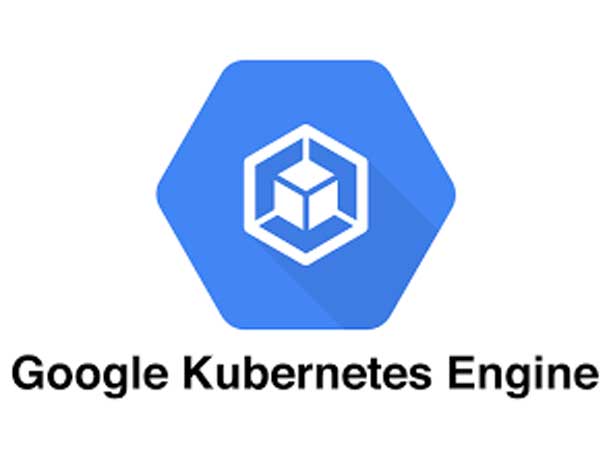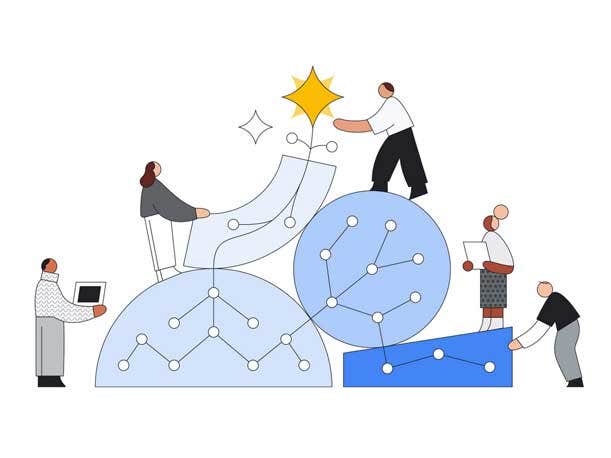Google Cloud Rockstar DoiT CEO On Google’s ‘Clear Advantages’
DoiT International CEO Yoav Toussia-Cohen speaks to CRN about where Google Cloud has major “advantages” over cloud competitors and just how meaningful Google’s new no-commitment Flex Agreements are.

As one of Google Cloud’s largest and most strategic partners in the world, DoiT International is bullish about the cloud giant’s market differentiation around its data platform, Kubernetes and artificial intelligence.
The innovative Santa Clara, Calif.-based company’s CEO Yoav Toussia-Cohen spoke to CRN about where Google Cloud has major “advantages” over its competitors, such as Amazon Web Services (AWS) and Microsoft Azure, as well as just how meaningful Google’s new Flex Agreements are.
“The Flex Agreements are fun and very fair. That’s something that Google has almost always had as an advantage—they’re trying to be a fair vendor out there,” said Toussia-Cohen.
[Related: 5 New ‘Bold’ Google Cloud, Workspace AI Offers: Thomas Kurian]
DoIT International’s $1.5 Billion Google Commitment; Acqusition
Before jumping into where Toussia-Cohen believes Google Cloud has market advantages over the competition, it’s worthwhile to note that DoiT inked one of the largest Google Cloud agreements in history in 2020. The company pledged to target a massive $1.5 billion in sales of Google Cloud infrastructure and services by 2025.
DoiT won Google Cloud’s prestigious Global Sales Partner of the Year in 2021. The company, which also made CRN’s 2023 Elite 150 list, provides top-notch cloud expertise targeting digitally savvy customers. The award-winning Google Cloud and AWS partner services has over 2,500 customers in over 70 countries.
In February, DoiT acquired Incentros’s Google Cloud Platform (GCP) reseller business to continue to boost the company’s Google business.
“We have a radical business model because when you work with us, you get access to our technology, access to our experts, our advisory services and our support,” said Toussia-Cohen. “You’ll see us doubling down on cloud technology for years to come to make sure our customers have more advantages building healthy, predictable business with us.”
In a recent interview with CRN, Toussia-Cohen explained Google Cloud market differentiation, “the race” for AI supremacy following the popularity of ChatGPT, and the significance of Google’s new Flex Agreements that allow customers to migrate their workloads to the cloud with no-upfront commitments.

What are some of Google Cloud’s market advantages right now?
Google Cloud has some clear advantages. The first one has always been the data platform that Google provides—it’s the best out there.
I would say Snowflake is a good competitor, but it doesn’t come from the other two hyperscalers [AWS and Microsoft]. They’re still trying to explore how to compete with Google in that. It used to be an unfair advantage Google had, until Snowflake came along and narrowed the gap.
At one point, Google has been struggling to get that mainstream. It existed everywhere in the tech industry, but it didn’t exist everywhere broadly. You didn’t see every bank running BigQuery yet. I would say it’s something that the tech industry embraced fast, but the mainstream—enterprise and corporations—did not yet completely embrace. The data platform of Google has the reputation, but it did not have the business model. It was too complicated for enterprises to sign up for something that was on demand.
Then Google came up with a model that made it easier for enterprises to be able to consume those [data platform] services. Google is doing the right things. They’re modeling that for enterprise and building that to be digestible by procurement. … They’re doing great things for customers here.

What are some other areas where Google Cloud has a leg-up on the competition?
Kubernetes is another big thing for Google. It was considered very techy at first, and is now getting wider and wider and more standardized into everywhere.
There was Kubernetes or containers or [Docker’s] Swarm. Which one would win? Now it’s obvious who won: it’s Kubernetes. Google Kubernetes is meaningful.
They are a major contributor, but you can say that also about Microsoft and Amazon—all of them contribute a lot to Kubernetes. It’s open source, and yes, it started from Google. The Google way of living with that as a managed service started way before [others]. It is way more mature. Today, Google still has that advantage.
I’m not talking about Anthos and the ability to serve an enterprise customer or multi-cloud customer. I’m talking about core deck workloads that are running on Kubernetes. Google manages them better.
In AI? Yes, Google has better tools and a better environment for data scientists. If a data scientist chooses something else than Google [it would be a surprise]—it could happen in IT departments, but not for real data scientists.
AI is another thing that Google does right. I would say that AWS closed most of the gap there. With Microsoft, now we’re all waiting to see the latest. OpenAI [ChatGPT] reshuffled the cards, but it’s still not a real Azure service integrated to the platform.

Talk about the new Flex Agreements that allows customers to migrate to the cloud at their workloads to Google Cloud with no-upfront commitments.
The Flex Agreement presents something different. Google is showing a very flexible way of doing business with customers, ‘Hey, let’s start building something together. You’ll get in. You do not have commit to anything, but if it’s successful, you’ll grow with us. Then from there, we’ll evolve into something more formal later.”
It’s a great segue to customers to try GCP while getting some benefits.
It’s nothing completely new though. It’s something that could have been achieved before in other ways. It’s just restructured the whole thing and standardized it so it’s not available anymore to only customers who know what to ask.
The Flex Agreements are fun and very fair. That’s something that Google has almost always had as an advantage—they’re trying to be a fair vendor out there. You saw that starting from their Sustained Use Discount in the past: you use more, you pay less.
This is awesome for customers.

What is the state of the AI market as Google, AWS and Microsoft are all making headlines following the launch of OpenAI’s ChatGPT late last year?
There is a race in AI.
After OpenAI highlighted and focused on AI—which is a rebrand of the promise of ML (machine learning) from three years ago—you see [Microsoft CEO] Satya Nadella and [Google Cloud CEO] Thomas Kurian running to all AI companies.
We’re seeing this happening within our customers in both visiting and trying to attract them. It’s extreme through. We’ve never seen it this extreme. Microsoft raised the bar. The bar is high. And it’s a different landscape since OpenAI. It raised the stakes for everyone.
So you’re seeing everything suddenly focused on AI. [Google] Workspace had some capabilities years ago, like it would complete your emails—what’s that if not AI? But suddenly, Workspace has new AI capabilities.
The highlight of Office 365 is that it embeds ChatGPT into it. AI conversations are becoming sexy again. It wasn’t sexy for a while. This is really disruptive technology, but it has been disruptive technology. I remember the first time Gmail completed my emails, I was like, ‘This is amazing. No one understands what’s happening here.’ But when you build a TensorFlow model and you understand what’s happening, it’s mind-blowing.